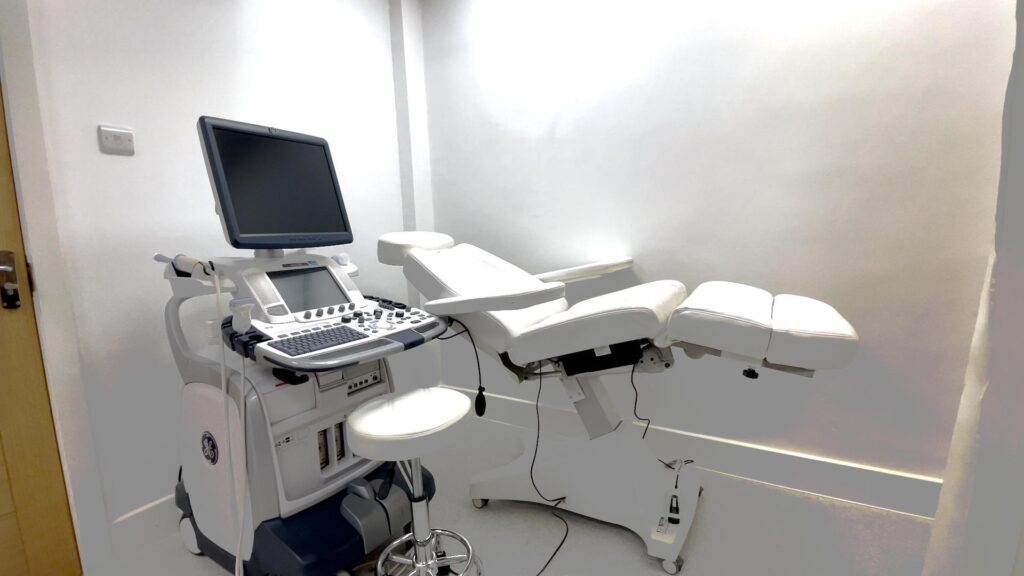Polycystic Ovary Syndrome (PCOS) is a health condition that affects many women worldwide, including a significant number in Nigeria. Despite its prevalence, many women remain unaware of its symptoms and potential health impacts. This article sheds light on PCOS, its symptoms, and the importance of early diagnosis and treatment.
What is PCOS?
PCOS is a hormonal disorder common among women of reproductive age. Women with PCOS may have infrequent or prolonged menstrual periods or excess male hormone (androgen) levels. The ovaries may develop numerous small collections of fluid (follicles) and fail to regularly release eggs (ovulate). It is this failure to ovulate that is chiefly responsible for the subfertility or infertility associated with the disease.

How Common is PCOS in Nigeria?
In Nigeria, PCOS affects a notable percentage of women. Studies have shown that between 13.8% and 18.1% of women of reproductive age in Nigeria suffer from PCOS. This means that nearly one in six women dealing with infertility in Nigeria may have PCOS. Despite these numbers, awareness about the condition remains low, leading to many cases going undiagnosed and untreated.
PCOS often goes undiagnosed because of the lack of awareness of the disease, particularly its symptoms. The variability of these symptoms makes it difficult to diagnose based on symptoms alone. The symptoms of PCOS can mimic those of other disorders, such as thyroid disease or adrenal hyperplasia.

PCOS often runs in families, suggesting a genetic component. The exact cause of PCOS is unknown, but several factors are believed to play a role, including:
Insulin resistance: Many women with PCOS have insulin resistance, meaning their cells cannot use insulin effectively. This can lead to higher insulin levels, which may increase androgen (male hormones) production. These elevated levels of androgens can prevent the ovaries from releasing eggs normally.
The symptoms of PCOS can start as early as puberty and may worsen over time if left untreated. These symptoms vary but often include:
Irregular menstrual cycles
Excess hair growth on the face and body
Acne and oily skin
Weight gain or difficulty losing weight
Thinning hair on the scalp
Difficulty getting pregnant
Diagnosing PCOS
Diagnosing PCOS typically involves a combination of medical history, physical exams, blood tests, and imaging studies.
Blood Tests:
Follicle-stimulating hormone (FSH) and Luteinizing hormone (LH): These hormones help regulate the menstrual cycle and ovulation.
Testosterone and other androgens: Elevated levels can indicate PCOS.
Insulin and glucose levels:
To check for insulin resistance.
Thyroid function tests:
To rule out thyroid disorders that can mimic PCOS symptoms.
Imaging Ultrasound:
A transvaginal ultrasound can reveal the presence of multiple small cysts on the ovaries, a hallmark of PCOS.
Treatment Options for PCOS
Treatment for PCOS focuses on managing individual symptoms and the individual desire for pregnancy. Treatment options include
Lifestyle changes: Weight loss through a healthy diet and regular exercise can help regulate menstrual cycles and improve insulin sensitivity.
Medications
Birth control pills: To regulate menstrual cycles and reduce androgen levels.
Metformin: To improve insulin resistance.
Anti-androgens: To reduce excess hair growth and acne.
Fertility treatments: Such as clomiphene or letrozole to stimulate ovulation.
How MHF Can Help
At MHF, we understand the challenges that come with PCOS and are committed to providing comprehensive care for women affected by this condition. Our clinic offers specialised testing and personalised treatment plans to help manage symptoms and improve quality of life. We can coordinate your care in the UK and in Nigeria.
If you are experiencing any symptoms of PCOS or have concerns about your menstrual health, don’t wait. Call MHF today for a consultation and take the first step towards better health. Early diagnosis and treatment can make a significant difference.
____________________ Dr Taiwo Olatunji Dr Taiwo Olatunji is an experienced British trained General Physician with experience in Acute Medicine, Emergency Medicine, and General Surgery including ENT. He brings a wealth of experience from previous roles in Business and NHS practice. He is the founder of MHF Medical Concierge, the first Afro-centric bespoke private healthcare service providing unrivaled client experience and solution-driven medical practice. mhf.healthcare/student admin@mhf.healthcare +44 (0)203 096 0019

















































































 EduTimes Africa, a product of Education Times Africa, is a magazine publication that aims to lend its support to close the yawning gap in Africa's educational development.
EduTimes Africa, a product of Education Times Africa, is a magazine publication that aims to lend its support to close the yawning gap in Africa's educational development.